Commentary by Louis VIS
Since the first European elections in 1979, voter turnout has been in constant decline and the elections of 2014 will be remembered for achieving the lowest turnout of any European elections to date with only 43.09% of Europeans casting a vote. This abysmal record has serious implications for future European democracy and begs two questions. Why should you vote in European elections? And, should voting be a right (optional) or an obligation (compulsory)?
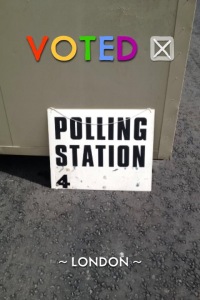
European Parliamentary elections occur every five years across all European Member States and voters decide whom to elect as their Member of the European Parliament (MEP) to represent them in the European Parliament (EP). Unfortunately European elections are often considered to be ‘second order elections’ thus less important than national general elections. This has a direct impact on voter turnout. However, people are wrong in assuming that these elections do not matter. The EP is the only European supranational institution to be directly elected by citizens. It is therefore the voice of European citizens within the EU decision-making process. With a total of 751 MEPs allocated according to the size of each Member State, the EP is also one of the most powerful institutions in the EU. Indeed, when it comes down to passing laws and legislation, the EP has as much power as the Council of the European Union and thus can veto or accept any proposals made by the European Commission. Furthermore, after each European election, the Commission and European budget have to pass a hearing in the EP and get the approval of MEPs. These examples clearly demonstrate that the EU’s so-called democratic deficit is nothing like populists and Eurosceptics would lead us to believe. Quite the contrary, it is only by voting in European elections that we can make sure MEPs will represent our own interest within the EU, by making sure the Commission and the EU can be held accountable and accurately represent our own interests.
The EP is consequently often considered to be the democratic supervisor of the EU and allows the concerns of citizens to be heard at the highest political level. Unfortunately, low turnout and high levels of protest votes during European elections greatly hinder this process. Indeed, in last year’s elections, the Front National (FN) in France and United Kingdom Independence Party (UKIP) in the UK actually ended up ‘winning’ the European elections in their own countries. Not only does a low turnout allow populist parties to thrive but it also means that the MEPs, who are sent to represent us in Brussels and Strasbourg, do not accurately represent the general population of these Member States. For instance, during the last European elections in the UK, only 4 out of 64 million people voted for UKIP… Yet as the biggest British party in the EP, UKIP is supposed to ‘represent’ the United Kingdom in Europe. Finally, criticising the EU and blaming it for all our misfortune is highly hypocritical when one considers the fact that most people did not even bother to cast a vote. Had they done so, things could have been very different and the EU a lot more representative.
This brings us to our second question on whether voting should be a right (optional) or an obligation (compulsory). In the UK, where voting is a right, national turnout hit record lows of 35.6%, whilst in Belgium, where voting is an obligation, turnout reached 89.64%. In the case of Belgium it must be noted that although voting is an obligation, citizens do have the option of casting a blank vote rather than having to pick between political parties. These wide variations in voter turnout have direct consequences. Indeed, they suggest that, on the contrary to Britons, Belgians are more accurately represented within the EP and thus the EU. It is therefore ironic that those very Britons who did not cast a vote are the ones seeking to change and reform the EU. However with such a low turnout and thus poor representation this is unlikely to happen. Not only would a higher turnout help to achieve a more accurate representation of British public opinion within the EU, but by electing more competent MEPs it would also have ensured that British voices within the EP would be taken much more seriously. Ultimately this article suggests that, as it is the case in Belgium, voting, whether in European elections or national elections, should be made an obligation rather than a right. Only then will politicians be fully accountable and representative of their own citizens, whilst criticisms will gain in validity and help improve democracy levels.
RELATED ARTICLES:

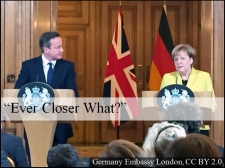
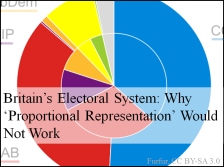

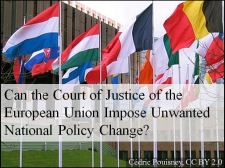
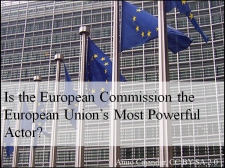
Interesting Louis. If it is an obligation, How does Belgium penalise those that do not vote? Are they punished? I don’t think that you should have to take part in anything If you don’t want to. You should be allowed to do nothing and not vote. Your individual freedom is more important than a more representative government.
LikeLike
Hi Will, thank you for your comment. Yes unless citizens can provide a valid justification for not voting, the Belgian government does penalise individuals via financial fines. If this happens too regularly they may even take legal action (I think). Whilst I understand your concerns, forcing people to vote is a necessary evil. Indeed voters from both extremes will always choose to vote, whilst ordinary people don’t bother. Therefore, although forcing people to vote might seem illiberal in the short run, it is actually the key to maintaining people’s individual freedoms. Imagine the damage caused if parties from the extreme right were elected to government simply because not enough ordinary folks had bothered to vote… It is for that very reason I argue for voting to be made an obligation rather than a right. Regards, Louis.
LikeLike